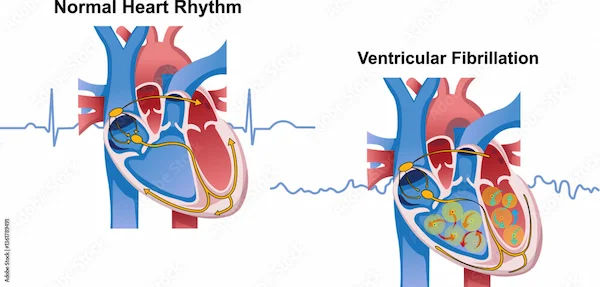- female
- 50 Years
- 31/03/2021
Is Sleeping on left side bad for heart?
More Cardiology Health Queries
View allI'm really worried about my health lately. I've been dealing with diabetes and high blood pressure for a year now. Last October, I went through some tests like an echo, and everything seemed normal except for some grade 1 diastolic dysfunction. The TMT was negative, and my ECG looked okay. But I'm still having chest pain and pain in my left hand every week, and my heart sometimes races to 150160 bpm, with blood pressure at 180110. I even feel like passing out once a month. I've got pain in my chest, left hand, and jaw too. The doctor said last year that it wasn't a cardiac issue, but I can't shake off these symptoms. Without my blood pressure meds, my blood pressure spikes to 170110 and my heartbeat to 130. I'm currently on metoprolol, talmisartan, and vildapride. Its been seven months since those tests; should I go for another echo or TMT? Ive attached my last years reports and recent ECG too. What do you think?
Based on your history and symptoms, it would be advisable to undergo a repeat echocardiogram and stress test (TMT) to assess your heart function and rule out any cardiac issues. Considering your persistent symptoms and the changes in your blood pressure and heart rate, it is crucial to ensure that your current medications are effectively controlling your conditions. In addition to your current medications (metoprolol 50mg twice a day, telmisartan 40mg twice a day, and vildagliptin-metformin 50500mg twice a day), your healthcare provider may need to adjust the dosages or consider adding other medications to better manage your blood pressure and heart rate. Please follow up with your healthcare provider for a thorough evaluation, including a repeat echocardiogram and stress test, to determine the underlying cause of your symptoms and to optimize your treatment plan. Regular monitoring and follow-up are essential in managing your diabetes, hypertension, and cardiac symptoms.
Answered by 1 Apollo Doctors
I'm worried about my blood pressure and want to make sure I'm using the right type of salt. Is rock salt a good option for someone with high blood pressure? And how much salt should I really be consuming each day to stay healthy?
For people with high blood pressure, it is recommended to use iodized salt with reduced sodium content. Rock salt, also known as Himalayan pink salt, is not recommended for individuals with high blood pressure due to its high sodium content. The recommended daily intake of salt for adults is about 5 grams, which is approximately one teaspoon. It is important to monitor your salt intake to help manage high blood pressure.
Answered by 1 Apollo Doctors
I'm really concerned about something and wanted to get your advice. I'm 61 and just had some tests done. They said my LV function is normal with an EF of 60 and no RWMA, but I have trivial MR and Grade 1 LV diastolic dysfunction with concentric LVH. The valves check out fine and there are no clots, vegetation, or pericardial effusion. My chamber dimensions are normal too. But when I did a stress TMT, it showed some significant ST changes in leads II, III, AVf, V4, V6, although I had no arrhythmia or chest pain, and my heart rate and blood pressure responded normally. Should I be worried about these ST changes? What does this all mean for my heart health?
Based on the information provided, it seems like the patient may be experiencing some significant ST changes in specific ECG leads without chest pain. In this case, the patient may benefit from medication to help manage their condition. The patient can be prescribed **Aspirin** 75mg daily to help reduce the risk of cardiovascular events. Additionally, **Atorvastatin** 20mg can be prescribed to help lower cholesterol levels and reduce the risk of further cardiac issues. In addition to these medications, **Metoprolol** 25mg can be prescribed to help manage the patient's blood pressure and heart rate, especially in the presence of significant ST changes on ECG. It is important for the patient to follow up with their healthcare provider regularly to monitor their condition and adjust their treatment plan as needed.
Answered by 1 Apollo Doctors
Disclaimer: Answers on Apollo 247 are not intended to replace your doctor advice. Always seek help of a professional doctor in case of an medical emergency or ailment.




